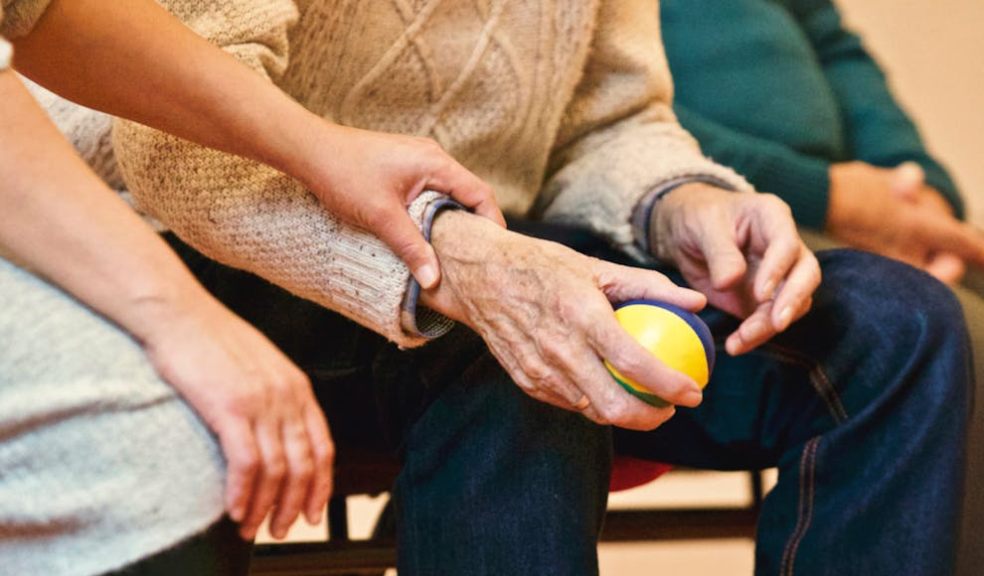
Elderly Care Tips: Promoting Mental Health and Well-being
As individuals age, maintaining mental health and well-being becomes increasingly important. The elderly population often faces unique challenges, from cognitive decline to social isolation, that can impact their overall quality of life. In this article, we will explore various strategies and tips to promote mental health and well-being among the elderly.
Creating a Supportive Environment for the Elderly
Providing a supportive environment is crucial for the mental health and well-being of the elderly. This involves creating a safe, comfortable, and stimulating living space that caters to their needs and preferences. This can include:
- Accessibility: Ensuring that the living space is accessible, with features like ramps, grab bars, and wide doorways to accommodate mobility challenges.
- Sensory Stimulation: Incorporating elements that engage the senses, such as soothing music, natural lighting, and vibrant colors, to create a calming and uplifting atmosphere.
- Personalization: Encouraging the elderly to personalize their living space with familiar items, photographs, and mementos to foster a sense of comfort and familiarity.
- Social Connections: Facilitating opportunities for social interactions, such as common areas for group activities or organized social events, to combat loneliness and promote social engagement.
By creating a supportive environment, the elderly can feel safe, comfortable, and empowered to maintain their independence and engage in activities that nurture their mental well-being.
Activities to Promote Mental Well-being in the Elderly
Engaging in various activities can have a profound impact on the mental well-being of the elderly. Some activities that can promote mental health include:
- Cognitive Stimulation: Engaging in activities that challenge the mind, such as puzzles, brain teasers, or learning a new skill, can help maintain cognitive function and prevent cognitive decline.
- Creative Pursuits: Encouraging the elderly to explore creative outlets, such as painting, drawing, or writing, can foster self-expression, boost mood, and provide a sense of accomplishment.
- Reminiscence Therapy: Providing opportunities for the elderly to share their life stories and memories can help them feel valued, connected, and foster a sense of purpose.
- Mindfulness and Relaxation: Incorporating mindfulness practices, such as meditation or deep breathing exercises, can help the elderly manage stress, anxiety, and improve overall well-being.
By incorporating a variety of engaging activities, the elderlycaretips.io/how-to/ can maintain cognitive function, express themselves, and find a sense of purpose, all of which contribute to their mental well-being.
The Role of Nutrition in Promoting Mental Health in the Elderly
Proper nutrition plays a crucial role in maintaining the mental health and well-being of the elderly. A balanced diet rich in essential nutrients can have a positive impact on cognitive function, mood, and overall mental health. Some key nutritional considerations include:
- Omega-3 Fatty Acids: Incorporating foods high in omega-3 fatty acids, such as fatty fish, walnuts, and flaxseeds, can help support brain health and cognitive function.
- Antioxidants: Consuming antioxidant-rich foods, like berries, leafy greens, and bell peppers, can help reduce inflammation and protect the brain from oxidative stress.
- Hydration: Ensuring adequate hydration by encouraging the elderly to drink plenty of water can help support cognitive function and overall mental well-being.
- Vitamin D: Adequate levels of vitamin D, which can be obtained through sun exposure or supplementation, have been linked to improved mood and cognitive performance in the elderly.
By focusing on a nutrient-dense diet, the elderly can support their mental health and maintain cognitive function as they age.
The Benefits of Physical Exercise for Mental Well-being in the Elderly
Regular physical activity can have a profound impact on the mental well-being of the elderly. Engaging in various forms of exercise can provide the following benefits:
- Improved Mood: Physical exercise has been shown to release endorphins, which can help alleviate symptoms of depression and anxiety, and improve overall mood.
- Enhanced Cognitive Function: Aerobic exercise, in particular, can help improve cognitive function, including memory, attention, and processing speed.
- Increased Social Engagement: Group-based exercise classes or activities can provide opportunities for social interaction, which can help combat loneliness and isolation.
- Reduced Risk of Dementia: Regular physical activity has been associated with a lower risk of developing dementia and other cognitive impairments.
Encouraging the elderly to incorporate a variety of physical activities, such as walking, swimming, or gentle yoga, can help them maintain their mental well-being and enjoy a higher quality of life.
Social Engagement and Its Impact on Mental Health in the Elderly
Social engagement and maintaining meaningful connections are crucial for the mental health and well-being of the elderly. Isolation and loneliness can have detrimental effects on mental health, leading to depression, anxiety, and cognitive decline. To promote social engagement, consider the following strategies:
- Facilitate Social Interactions: Organizing group activities, such as book clubs, game nights, or community outings, can provide opportunities for the elderly to interact with their peers and build social connections.
- Encourage Volunteering: Engaging the elderly in volunteer work or community service can give them a sense of purpose, foster social connections, and contribute to their overall well-being.
- Utilize Technology: Introducing the elderly to technology, such as video conferencing or social media, can help them stay connected with family and friends, even if they are physically distant.
- Promote Family Involvement: Encouraging family members to regularly visit, engage in activities, and maintain open communication with the elderly can help them feel valued and socially connected.
By prioritizing social engagement and fostering meaningful connections, the elderly can experience improved mental health, reduced feelings of isolation, and a greater sense of belonging.
Seeking Professional Help for Mental Health Issues in the Elderly
While the strategies mentioned above can be effective in promoting mental health and well-being, it is essential to recognize when professional help may be necessary. The elderly population is particularly vulnerable to mental health challenges, such as depression, anxiety, and cognitive impairments. If an individual is exhibiting signs of these issues, it is crucial to seek the guidance of healthcare professionals, such as:
- Geriatric Psychiatrists: These specialists are trained to assess, diagnose, and treat mental health conditions in the elderly, providing personalized care and support.
- Psychologists or Therapists: Engaging in regular therapy sessions can help the elderly work through emotional and psychological challenges, develop coping strategies, and improve their overall well-being.
- Support Groups: Joining support groups, either in-person or online, can provide the elderly with a sense of community, peer-to-peer support, and the opportunity to share their experiences.












%20(wecompress.com)0671.png)

